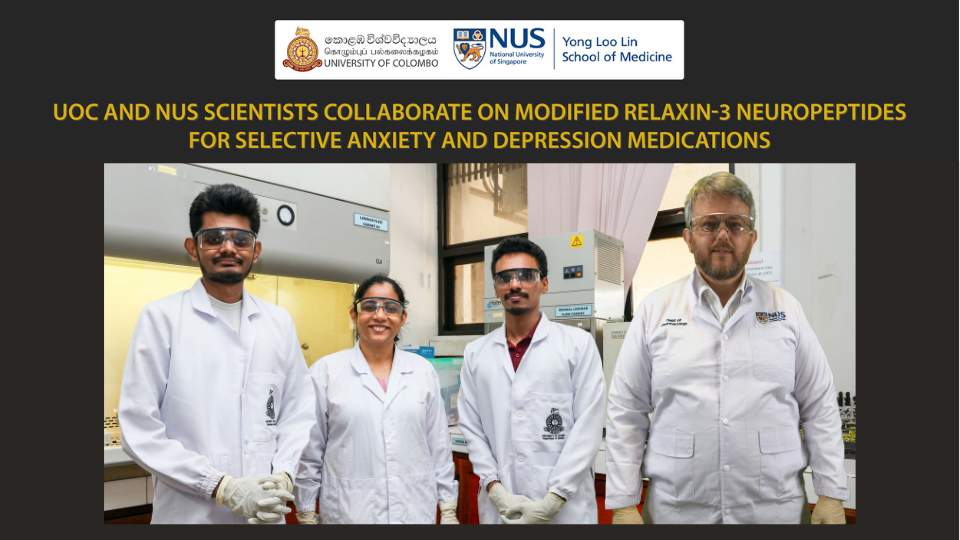Breaking Boundaries: UOC and NUS Scientists Collaborate on Modified Relaxin-3 Neuropeptides for Selective Anxiety and Depression Medications
A Collaborative Journey Towards Relief from Mental Health Challenges
Scientists at the University of Colombo in collaboration with partners from the National University of Singapore (NUS), A*STAR's Bioinformatics Institute, and Tohoku University, are making significant strides in finding better ways to treat anxiety, depression, and related problems. They are exploring new approaches to make medications more effective and with fewer side effects.
Traditionally, medicines for issues like anxiety and depression cause unwanted side effects because their targets affect many other physiological responses of the body, apart from the nervous system. But what if we could make medicines that only target the specific problems we want to fix? That's what the team is investigating. So, they are figuring out how to modify or bias it to only do what they want it to.
Their recent study, published in Science Signaling (https://www.science.org/toc/signaling/17/823), showed promising results in this direction.
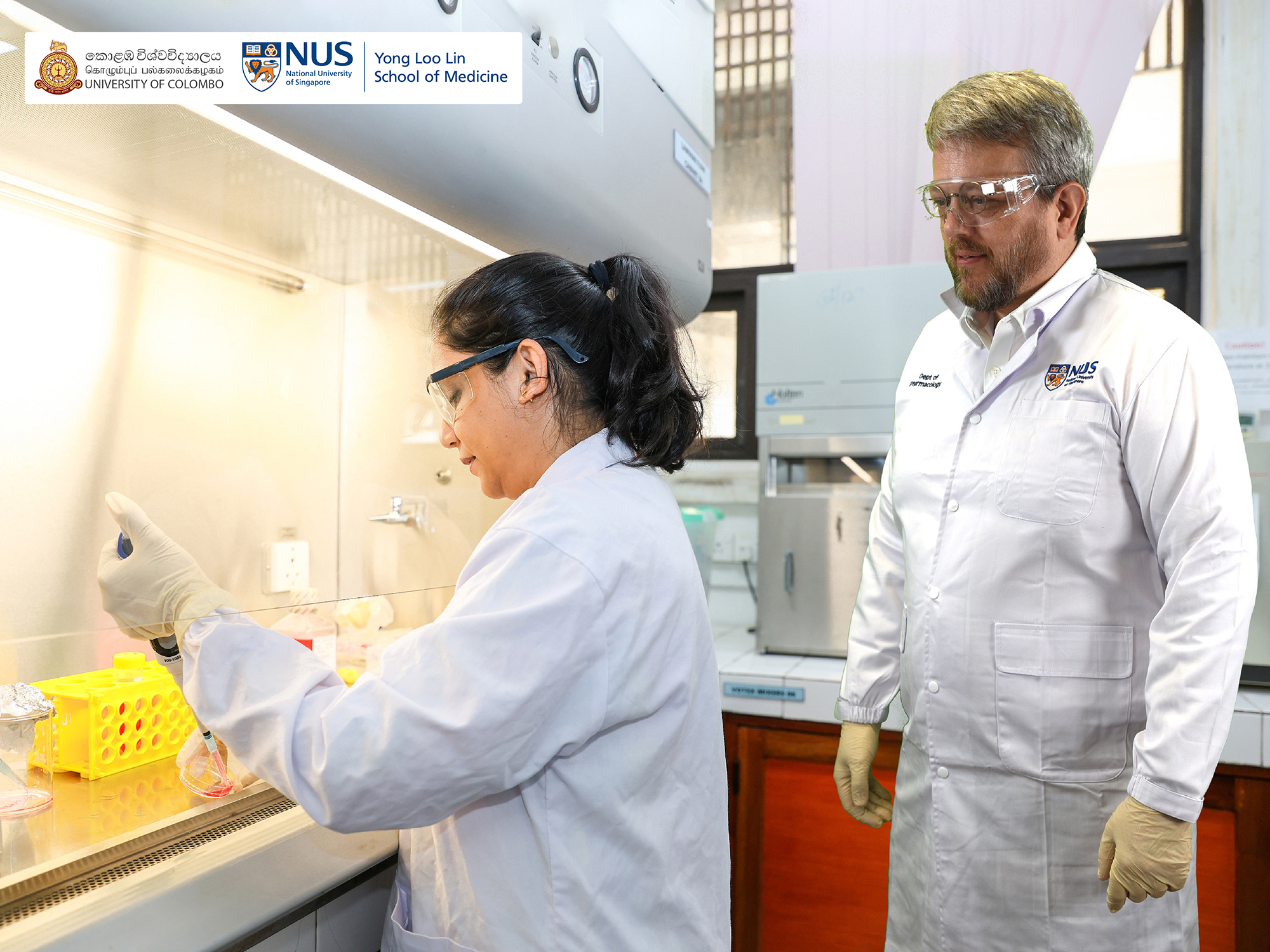
Dr. Tharindune Jayakody (left) the first author of the publication mentored by Prof. Gavin Dawe. Credit: FOS Media, and Alan Koh, Teo Mei Hui & Ho Woon Fei (NUS Medicine)
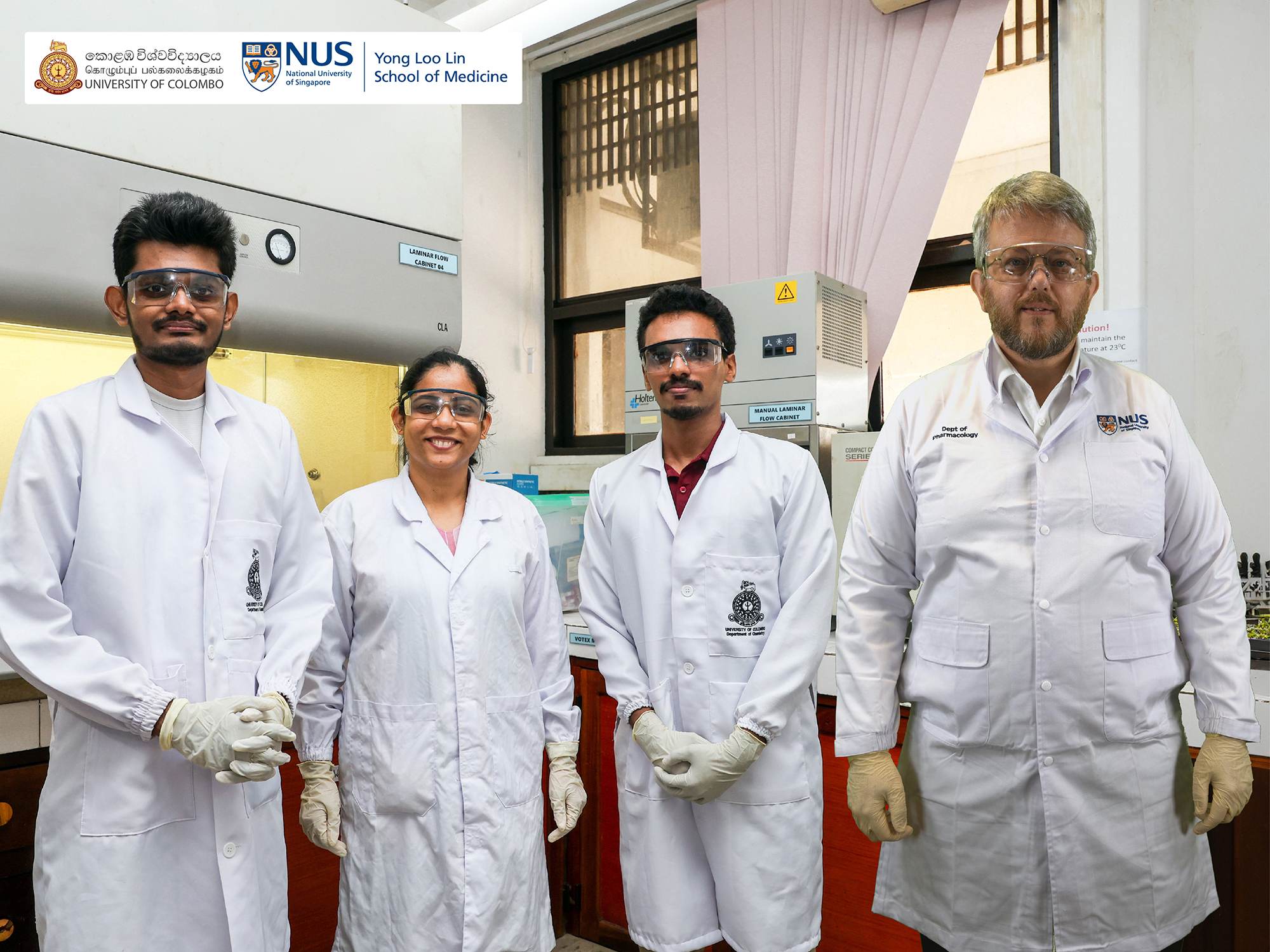
Some members of the current research team (from left to right: Duvindu Bethmage (Undergraduate, UoC), Dr. Tharindunee Jayakody (UoC), Dhanuka Dilshan (UoC), Prof. Gavin Dawe (NUS Medicine). Credit: FOS Media and Alan Koh, Teo Mei Hui & Ho Woon Fei (NUS Medicine).
Led by Professor Gavin Dawe, Head of the Department of Pharmacology at the Yong Loo Lin School of Medicine, National University of Singapore (NUS Medicine), the researchers are focusing on a molecule called relaxin-3 found in our brains. This molecule helps control stress, mood, pain perception and feeding behaviours by interacting with its target RXFP3. By understanding how it works, they hope to develop drugs that only affect the parts of the brain linked to anxiety and depression, without causing other problems. Professor Dawe explains that they're using a technique called peptide stapling to make the molecule more stable and efficient in interacting with its target. This could make the medicines work better for treating anxiety, depression, and addiction.
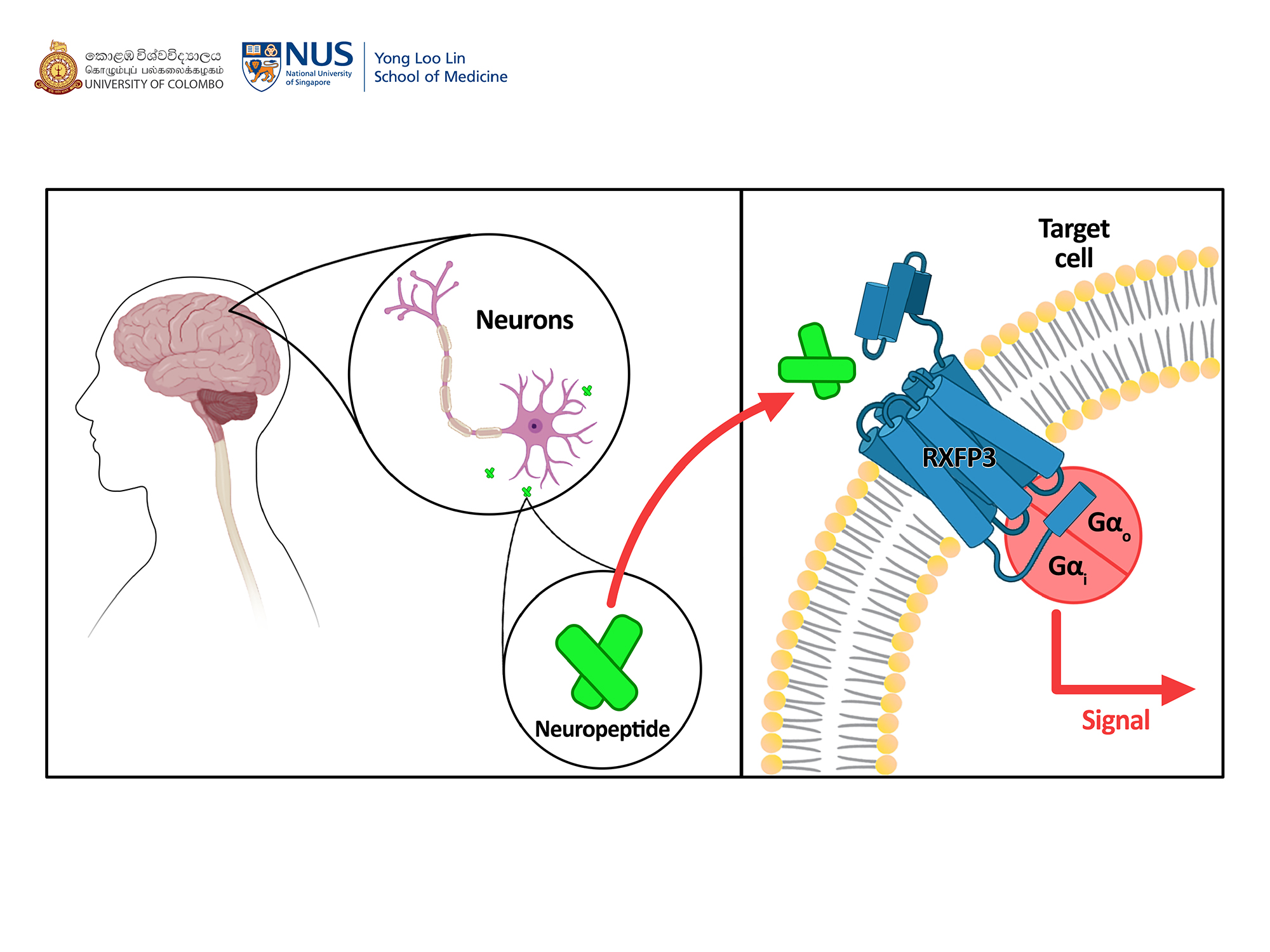
Neuropeptide relaxin-3 and it's target RXFP3 are produced by the brain (Credit: Created by Dhanuka Dilshan (Undergraduate, UoC) and NUS Medicine.
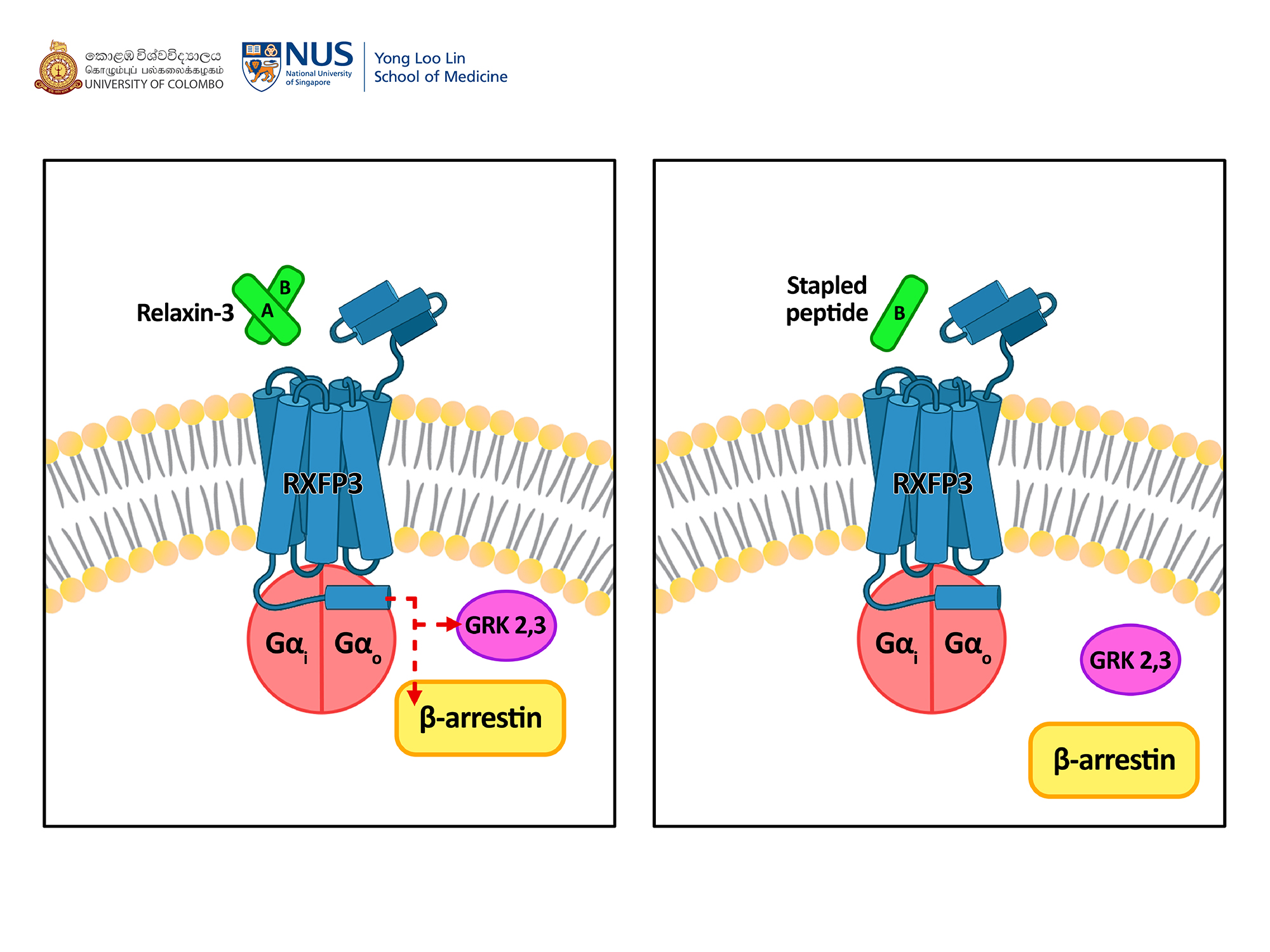
Stapled Relaxin-3 B chain shows bias towards G-protein activation (Credit: Created by Dhanuka Dilshan (Undergraduate, UoC) and NUS Medicine.
Dr Tharindunee Jayakody, first author of the study and PhD alumna of the Department of Pharmacology at NUS Medicine is now a lecturer at the Department of Chemistry, Faculty of Science, University of Colombo. She is excited about their progress and believes that their work could lead to medicines that specifically target anxiety and depression, making them more effective. She is hopeful that the ongoing collaborative work between NUS Medicine and her research group at the University of Colombo would also strive to understand how proteins like RXFP3 function at a molecular level with the help of “biased stapled peptides”.
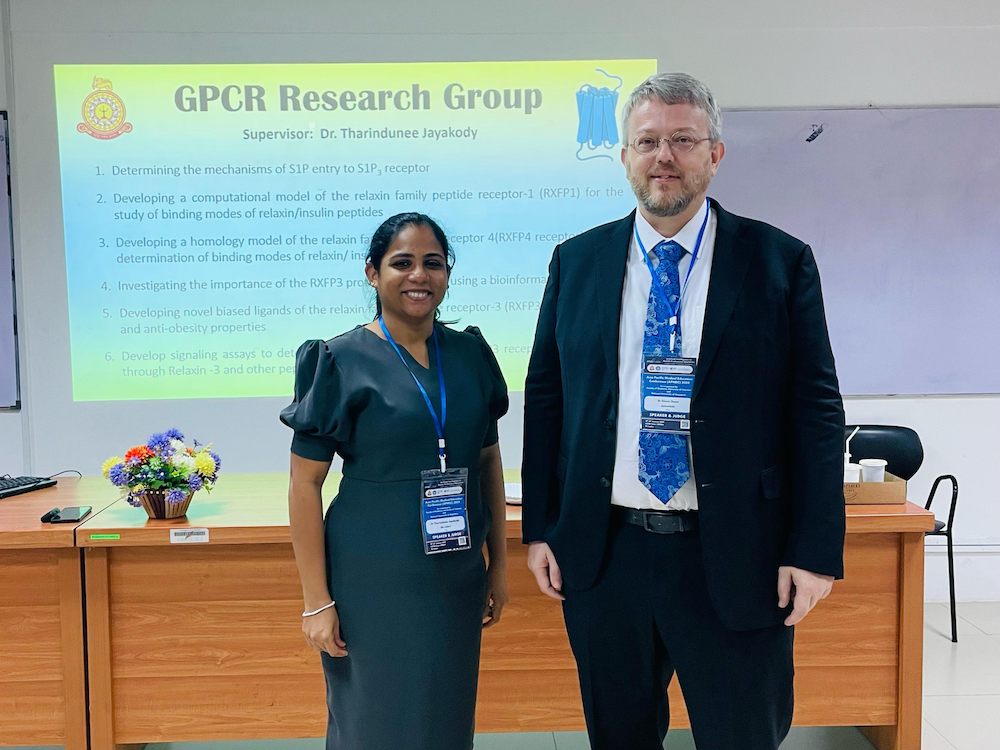
Prof Gavin Dawe's visit to UoC (Credit: Dhanuka Dilshan, UoC)
Looking forward, the team is eager to continue their research to better understand how these stapled peptide molecules work in the body. Ultimately, they hope their work will lead to new and improved treatments for anxiety, depression, and related issues, offering hope to those who struggle with these conditions. Go to the Full Paper: https://www.science.org/doi/10.1126/scisignal.abl5880.

